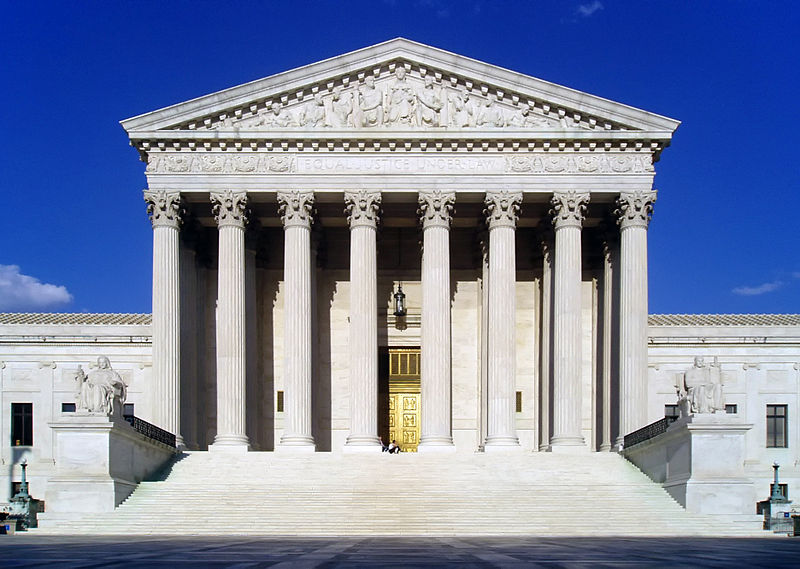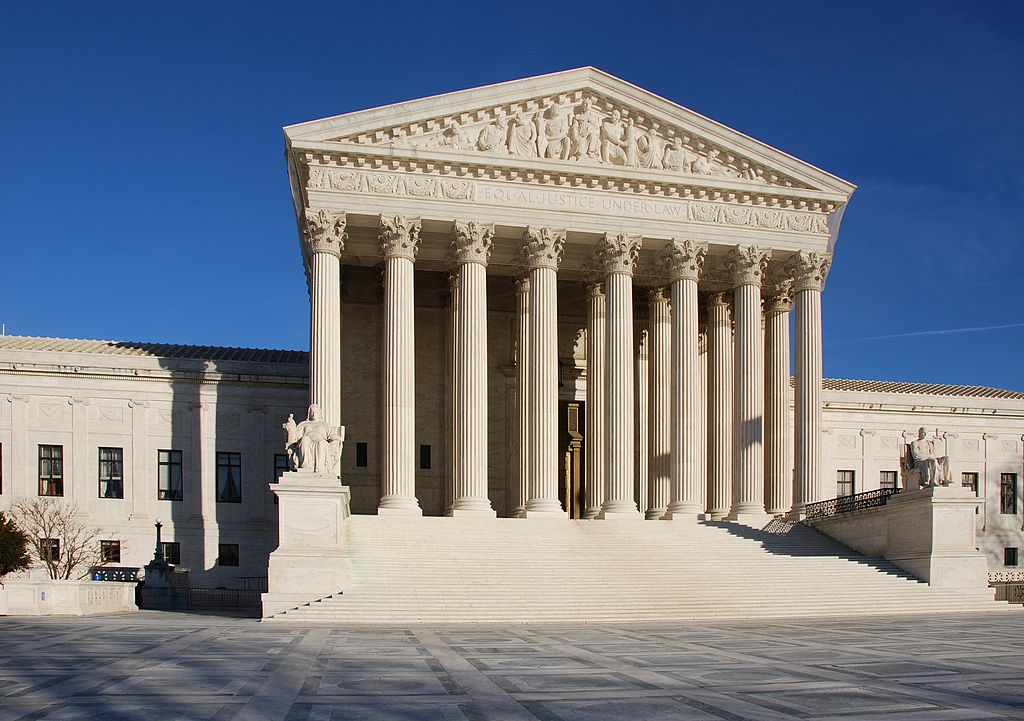Author: Jace Lington
-
U.S. Supreme Court agrees to hear challenge to DHS ‘remain in Mexico’ policy

On October 19, the U.S. Supreme Court agreed to hear Wolf v. Innovation Law Lab. The case involves whether the U.S. Department of Homeland Security (DHS) properly implemented a policy called the Migrant Protection Protocols (MPP). The MPP requires people seeking asylum in the United States who travel from a third country through Mexico to…
-
Ballotpedia study finds that 36 state APAs limit ex parte communications between hearing officers and the parties involved in agency adjudication
A Ballotpedia survey of all 50 state constitutions and administrative procedure acts (APAs) revealed that 36 state APAs limit ex parte communications between hearing officers and the parties involved in adjudication, as of October 2020. No state constitutions restrict contact between agency hearing officials and parties in a case. Ex parte communications are any form…
-
U.S. Supreme Court agrees to hear Appointments Clause challenge to administrative patent judges

On October 13, the U.S. Supreme Court agreed to hear United States v. Arthrex Inc., a case involving the president’s appointment and removal power and whether administrative patent judges (APJs) are principal officers of the United States who must be appointed by the president and confirmed by the U.S. Senate. After losing a patent dispute…
-
U.S. Supreme Court declines to hear case challenging Chevron deference

On October 5, the U.S. Supreme Court rejected a challenge against Chevron deference brought by the Children’s Hospital Association of Texas. The association had asked whether courts should give Chevron deference to agency legal interpretations that are different from previous agency interpretations. Chevron deference is an approach to judicial review that compels federal courts to yield to a federal agency's…
-
Ballotpedia study shows that 29 state APAs require administrative agencies to conduct a cost-benefit analysis before implementing rules

A Ballotpedia study of all 50 state constitutions and administrative procedure acts (APAs) showed that 29 state APAs require administrative agencies to conduct a cost-benefit analysis before implementing rules, as of September 2020. Cost-benefit analysis is an aspect of agency dynamics, one of the five pillars key to understanding the main areas of debate about…
-
Payroll tax deferral plan subject to challenge under Congressional Review Act, GAO confirms

On September 15, the Government Accountability Office (GAO) sent a letter to U.S. Senate Minority Leader Chuck Schumer (D-N.Y.) and Senator Ron Wyden (D-Ore.) clarifying that a recent IRS guidance document was subject to challenge through the Congressional Review Act (CRA). The IRS guidance related to a presidential memorandum issued by President Donald Trump on…
-
Ballotpedia study shows that 29 state APAs require administrative agencies to accept oral evidence during adjudicative hearings

A Ballotpedia study of all 50 state constitutions and administrative procedure acts (APAs) showed that 29 state APAs require administrative agencies to accept oral evidence during adjudicative hearings, as of August 2020. Administrative agencies in those states hear oral testimony during hearings like a state court. Adjudication proceedings include agency determinations outside of the rulemaking…
-
Ballotpedia study shows that no states provide for juries to participate in agency adjudication hearings

A Ballotpedia survey of all 50 state constitutions and administrative procedure acts (APAs) revealed that no state constitutions or APAs provide for juries to participate in agency adjudication hearings, as of August 2020. Thus, hearing officers or other agency officials preside over and decide the outcome of adjudications instead of people from the community. Adjudication…
-
Ballotpedia study shows that 46 states allow administrative agencies to choose whether to follow formal adjudication procedures

A Ballotpedia study of all 50 state constitutions and administrative procedure acts (APAs) showed that 46 state constitutions or APAs allow administrative agencies to choose whether to follow formal adjudication procedures in administrative hearings, as of August 2020. Those states allow administrative agencies to settle these cases informally with fewer procedural safeguards than the formal…
-
Ballotpedia study shows that every state allows administrative agencies to impose monetary penalties without a court order

A Ballotpedia survey of all 50 states showed that no state constitutions or Administrative Procedure Acts (APAs), as of May 2020, require administrative agencies to get a court order before imposing monetary penalties as a result of adjudication proceedings. Those state constitutions and APAs let agencies impose penalties without involving the judicial branch of the…

